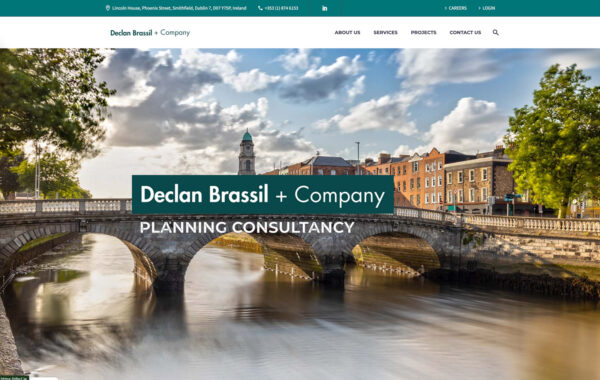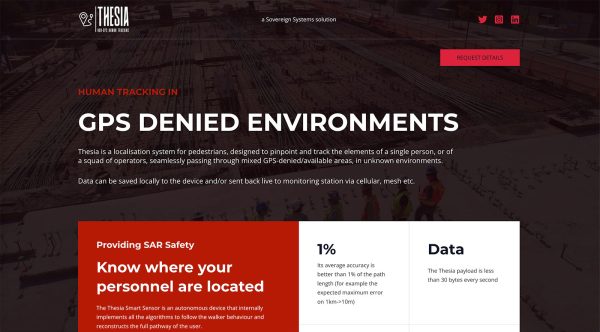In today's digital landscape, the prevalence of mobile devices has fundamentally transformed how individuals access the internet. As of February 2025, there are approximately 5.56 billion internet users worldwide, representing 67.9% of the global population. Notably, mobile devices account for 62% of global internet traffic, underscoring their dominance in online interactions. Furthermore, by mid-2024, it was estimated that over 96% of the global digital population used a mobile device to connect to the internet. These statistics highlight the critical importance for businesses to adopt mobile-responsive designs, ensuring that websites deliver seamless and engaging experiences across all devices.
Enhanced User Experience
- A responsive design ensures that your website looks and functions well on all screen sizes, from desktops to smartphones.
- It improves navigation, readability, and usability, reducing frustration for users.
Higher Search Engine Rankings (SEO Benefits)
- Google prioritises mobile-friendly websites in search rankings, especially with its mobile-first indexing approach.
- A responsive design helps improve SEO, increasing visibility and organic traffic.
Increased Mobile Traffic
- More than 50% of web traffic comes from mobile devices.
- A mobile-responsive site captures and retains more visitors, leading to higher engagement and conversions.
Faster Loading Speeds
- Mobile-responsive sites load faster, reducing bounce rates.
- Google’s Core Web Vitals emphasise page speed, impacting search rankings.
Improved Conversion Rates
- A well-optimised mobile site makes it easier for users to complete actions (purchases, sign-ups, inquiries).
- A seamless experience builds trust and encourages users to stay longer.
Cost and Maintenance Efficiency
- Instead of managing separate desktop and mobile versions, a responsive design adapts to all devices automatically.
- This reduces development and maintenance costs.
Competitive Advantage
- Businesses with mobile-friendly websites stand out, offering better user experiences than competitors who neglect responsiveness.
In an era where mobile browsing dominates, having a mobile-responsive website is no longer optional—it’s essential. A well-optimised website not only enhances user experience but also improves search rankings, increases engagement, and drives conversions. Businesses that fail to prioritise responsiveness risk losing potential customers to competitors who provide seamless mobile experiences. By embracing mobile-first design principles, companies can future-proof their websites, maximise reach, and stay ahead in an increasingly mobile-driven world. If you haven’t already optimised your site for mobile, now is the time to do so.
 Read more +
2025-04-14 By Shay in Website, WordPress
Read more +
2025-04-14 By Shay in Website, WordPress  Read more +
2025-04-13 By Shay in Landing page, Maintenance, Management, SEO, Services, Social Media, Website, WordPress
Read more +
2025-04-13 By Shay in Landing page, Maintenance, Management, SEO, Services, Social Media, Website, WordPress  Read more +
2025-04-11 By Shay in Maintenance, Management, SEO, Social Media, Website, Website add-ons, WordPress
Read more +
2025-04-11 By Shay in Maintenance, Management, SEO, Social Media, Website, Website add-ons, WordPress  Read more +
2025-04-10 By Shay in Website, WordPress
Read more +
2025-04-10 By Shay in Website, WordPress  Read more +
2025-04-09 By Shay in Website, WordPress
Read more +
2025-04-09 By Shay in Website, WordPress  Read more +
By Shay in Website, WordPress
Read more +
By Shay in Website, WordPress  Read more +
2025-04-08 By Shay in Website, WordPress
Read more +
2025-04-08 By Shay in Website, WordPress  Read more +
2025-04-07 By Shay in Website, WordPress
Read more +
2025-04-07 By Shay in Website, WordPress  Read more +
2025-04-05 By Shay in Maintenance, Management, Security, SEO, Services, Social Media, Website, WordPress
Read more +
2025-04-05 By Shay in Maintenance, Management, Security, SEO, Services, Social Media, Website, WordPress  Read more +
2025-04-04 By Shay in Social Media
Read more +
2025-04-04 By Shay in Social Media 



















